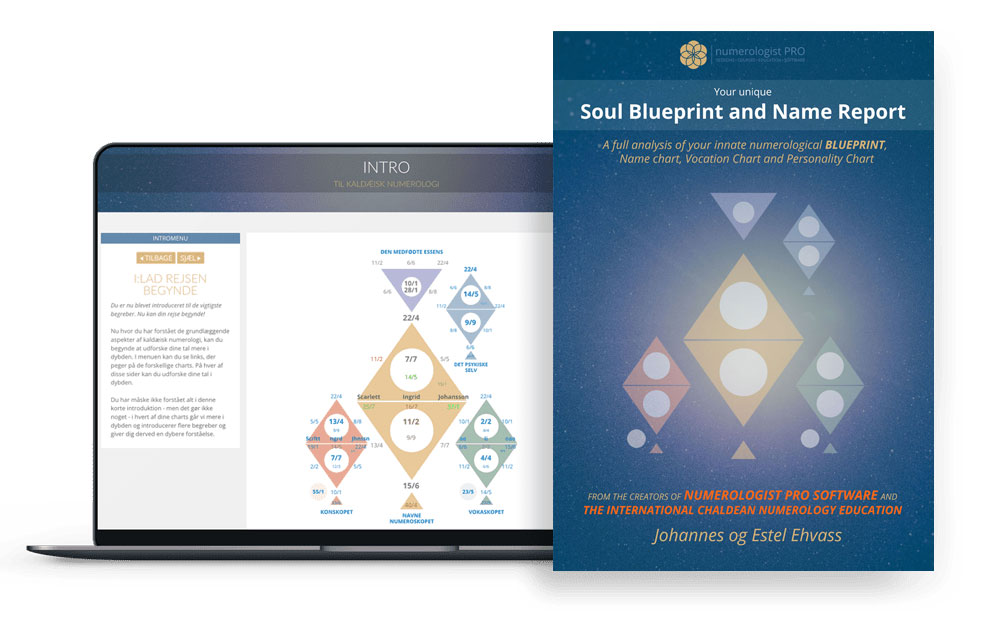Mercury in Astrology

Johannes Ehvass
Welcome, dear reader! In this series of articles, we delve into the fascinating realm of astrology and its emphasis on the heavenly bodies. Each heavenly body, replete with its own attributes and mythic tales, significantly influences our personalities, destinies, and the subtle web of connections in our lives. As we explore these celestial bodies, we will uncover the enduring insights and intricate details that make astrology an intriguing and enduring field. Join me on this journey to discover the mysteries and allure of the planets.
Mercury: The Messenger of the Cosmos
Astronomical Significance

Mercury, named after the Roman deity of communication and trade, is the innermost planet in our vast solar system. It stands unique, not just because of its proximity to the Sun, but due to its peculiar characteristics that have intrigued astronomers and astrologers alike for millennia.
Mercury’s Position in the Solar System
As the closest planet to the Sun, Mercury orbits this massive star at an average distance of approximately 57.91 million kilometers (36 million miles). This proximity results in a swift orbit, allowing Mercury to complete its cycle around the Sun in a mere 88 Earth days, making it the fastest planet in terms of orbital speed.
Retrograde Motion: An Illusion of Backward Movement
One of Mercury’s most talked-about astronomical phenomena is its retrograde motion. A few times a year, from Earth’s vantage point, Mercury seems to move backward in the sky, a motion known as “retrograde”. However, this is an optical illusion. The retrograde motion occurs due to the relative speeds and positions of Earth and Mercury in their respective orbits. This celestial event has garnered much attention, especially in astrological circles, for its perceived effects on communication, travel, and technology.
Symbolic Representations
Mercury: The Symbol of Intellect and Communication
In astrological symbolism, Mercury represents the faculties of communication, intellect, and reasoning. It governs the way we process information, communicate our thoughts, and how we learn and understand our surroundings. In essence, Mercury is the bridge between the conscious and the unconscious, facilitating the translation of ideas into words and actions.
Historical and Cultural Interpretations
Throughout history, Mercury’s swift movement across the sky led to its association with speed, communication, and travel. In Roman mythology, Mercury was the messenger of the gods, a deity known for his cunning, wit, and swiftness. He wore winged sandals and a winged helmet, allowing him to travel with unparalleled speed to convey messages between gods and mortals.
In Greek mythology, the deity corresponding to Mercury was Hermes. Besides being the messenger god, Hermes was also the patron of commerce, boundaries, and the protector of travelers, shepherds, and thieves. His versatility and multifaceted nature made him one of the most popular gods in Greek tales, often serving as a mediator, guide, and bridge between various realms.
In other cultures, Mercury’s speedy orbit around the Sun made it a symbol of agility, adaptability, and transformation. For instance, in ancient Egyptian beliefs, Mercury was equated with Thoth, the god of writing, magic, wisdom, and the moon. Thoth played a crucial role in maintaining balance and harmony in the cosmos, quite similar to Mercury’s function of balancing communication and understanding in astrology.
Mercury in Astrological History
The realm of astrology has revered Mercury for its influential role in shaping personalities, destinies, and temporal events. As a planet governing intellect and communication, Mercury’s position and movement in one’s natal chart provide profound insights into the individual’s cognitive processes, communicative style, and even potential vocational paths.
Mercury in Ancient Astrological Practices
In ancient astrological traditions, Mercury was observed for its swift motion, leading it to be associated with rapid changes, transitions, and short journeys. Babylonian astrologers, some of the earliest practitioners of astrology, viewed Mercury as a manifestation of various gods, depending on its position in the sky. Over time, as astrology evolved and spread to different civilizations, Mercury’s importance grew, especially in natal astrology, where its position and aspects elucidated the native’s intellectual and communicative strengths and challenges.
Evolution Over Time
As astrology branched out to various parts of the world, interpretations and practices diversified, but Mercury’s core significance remained largely consistent. From Hellenistic astrology to Vedic traditions in India, Mercury was seen as a vital component in understanding a person’s aptitude for learning, communication style, and overall cognitive abilities. Its retrograde motion, in particular, became a focal point for astrologers to predict periods of miscommunication, reflection, and revisiting past events.
Conclusion
Mercury, with its astronomical uniqueness and rich symbolic interpretations, has etched an indelible mark in the annals of astrology. Its dual nature, being both a planet of logic and communication, positions it as a bridge between our inner psyche and the external world. As we continue to explore the depths of astrology, Mercury serves as a reminder of the intricate dance between the cosmos and human understanding, and how celestial events mirror the complexities of the human mind.
Mercury in Major Astrological Traditions
Western Astrology
Western astrology, with its roots in the ancient Mediterranean world, places significant importance on Mercury, particularly concerning an individual’s cognitive abilities, communication style, and manner of thinking.
Mercury: The Emissary of Thought and Expression
In the Western natal chart, Mercury reveals the nuances of an individual’s mind. Its placement by sign and house provides insights into how one thinks, communicates, learns, and perceives the world. For instance, someone with Mercury in fiery Aries might communicate with enthusiasm and spontaneity, while a person with Mercury in analytical Virgo may showcase meticulousness and precision in their thought processes.
Natal Chart and Mercurial Returns
As Mercury orbits the Sun in roughly 88 days, it has multiple returns to its natal position within a year. These “Mercurial returns” can be interpreted as cycles of mental renewal, offering opportunities to revisit and revise one’s thoughts, plans, and communication strategies.
Vedic (Indian) Astrology
Vedic astrology, or Jyotish, emphasizes the spiritual and karmic dimensions of life. Within this framework, Mercury, known as “Budha”, plays a pivotal role in shaping the mind and intellect of an individual.
Mercury (Budha): The Facilitator of Discernment
In Jyotish, Budha is the offspring of the Moon and is often associated with intelligence, logic, and analytical abilities. It determines how one discriminates between reality and illusion. A strong Mercury in the birth chart often indicates clarity of thought, eloquence, and a natural aptitude for learning.
Karma and Dharma: Mercury’s Dual Role
Mercury’s swift movement and dual rulership (of both Gemini and Virgo) position it as a planet of duality in Vedic astrology. It governs the balance between material pursuits (Karma) and one’s righteous path (Dharma), influencing how one navigates the challenges of worldly life while upholding spiritual values.
Chinese Astrology
In the intricate system of Chinese astrology, Mercury doesn’t hold the same prominence as in Western or Vedic traditions. However, it still offers subtle influences, particularly concerning an individual’s intellectual pursuits and communication style.
Mercury and the Yin Principle
Aligned with the receptive Yin energy, Mercury influences introspection, reflection, and the inner processing of information. Those born in years influenced by Mercury might display a contemplative nature, seeking deeper meanings and understanding in their interactions with the world.
Mayan, Egyptian, and Other Traditions
Mercury’s essence permeates various astrological traditions across the globe, though its interpretations and significance may vary.
Mayan Astrology
The Mayans, with their advanced astronomical observations, recognized Mercury as a herald of change due to its rapid orbit. It became associated with transitions, communication between realms, and the conveyance of sacred knowledge.
Egyptian Traditions
In ancient Egypt, Mercury was linked with Thoth, the god of wisdom, writing, and magic. Thoth’s role as the scribe of the gods mirrors Mercury’s dominion over communication and the written word in astrological traditions.
Conclusion
Across diverse astrological traditions, Mercury consistently emerges as a symbol of the mind, communication, and intellectual pursuits. Whether it’s the Western understanding of Mercury governing expression or the Vedic view of Budha shaping discernment, this swift planet’s influence is undeniable. As we delve deeper into its multifaceted roles across cultures, we gain a more profound appreciation for Mercury’s intricate dance with human cognition and expression.
Mercurial Influence Through the Zodiac
Mercury in Aries to Mercury in Pisces
The placement of Mercury in a zodiac sign provides keen insights into an individual’s communication style, thought processes, and intellectual tendencies. Each sign imparts unique characteristics, molding the Mercurial energies in specific ways.
Mercury in Aries
When Mercury resides in Aries, it brings forth a direct and assertive communication style. These individuals tend to think and speak quickly, often driven by spontaneity. Their thoughts are pioneering, preferring original ideas over conventional ones. However, they may sometimes speak before thinking, leading to impulsiveness in their verbal expressions.
Mercury in Taurus
With Mercury in Taurus, there’s a methodical and deliberate approach to thought and communication. These individuals prefer stability in their intellectual pursuits and convey their ideas with persistence and patience. Their communication style is practical, relying on tangible facts and concrete details.
Mercury in Gemini
In its home sign of Gemini, Mercury’s energies are amplified. These individuals possess a natural curiosity, often juggling multiple ideas and interests simultaneously. They’re adaptable communicators, capable of expressing themselves with wit and versatility. However, they may struggle with indecision due to their varied interests.
Mercury in Cancer
When Mercury is in Cancer, emotional depth and intuition influence communication. These individuals often think with their hearts, allowing feelings to guide their intellectual processes. They’re attentive listeners and can convey their thoughts with empathy and sensitivity.
Mercury in Leo
Mercury in Leo results in confident and dramatic communication. These individuals enjoy being in the spotlight, often expressing their ideas with flair and passion. They’re persuasive speakers but might sometimes come off as domineering in their quest to be heard.
Mercury in Virgo
In its other home sign of Virgo, Mercury promotes analytical and detailed thinking. These individuals have a knack for precision and often excel in tasks that require meticulous attention. Their communication is clear and practical, often aiming to improve and refine ideas.
Mercury in Libra
With Mercury in Libra, there’s a natural inclination towards diplomacy and fairness in communication. These individuals seek balance in their thoughts, often playing the role of mediator in disputes. They possess an aesthetic appreciation and can articulate their ideas with grace and charm.
Mercury in Scorpio
Mercury in Scorpio delves deep into the mysteries of the mind. These individuals possess a probing intellect, often uncovering hidden truths and secrets. Their communication style is intense and transformative, capable of leaving a lasting impact on the listener.
Mercury in Sagittarius
In the expansive sign of Sagittarius, Mercury promotes a broad-minded and optimistic approach to thinking. These individuals are seekers of knowledge, often drawn to philosophy and higher education. They communicate with enthusiasm and vision, although they might sometimes overlook details in their quest for the bigger picture.
Mercury in Capricorn
With Mercury in Capricorn, thoughts and communications take on a structured and disciplined form. These individuals possess a pragmatic mind, often excelling in planning and organizational tasks. Their communication is cautious and goal-oriented, placing importance on reliability and consistency.
Mercury in Aquarius
Mercury in Aquarius fosters innovative and unconventional thinking. These individuals are ahead of their time, often introducing radical ideas and concepts. They communicate with originality, although their approach might sometimes seem detached or impersonal due to their objective perspective.
Mercury in Pisces
In the intuitive waters of Pisces, Mercury blurs the lines between reality and imagination. These individuals think and communicate through symbols, dreams, and metaphors. Their intellect is guided by intuition, allowing them to tap into the collective unconscious and express ideas with poetic grace.
Conclusion
The dance of Mercury through the zodiac offers a myriad of flavors to human cognition and expression. By understanding its influence in each sign, we gain a clearer picture of our communicative strengths and challenges, allowing us to navigate our interactions with heightened awareness and empathy.
Mercury in Houses and Aspects
Mercurial Houses
Just as Mercury’s sign placement provides insights into an individual’s communicative style and intellectual tendencies, its house placement can reveal where these Mercurial energies are most prominently expressed in one’s life. The astrological houses represent various areas of our existence, and Mercury’s placement can shine light on where and how we apply our intellectual and communicative faculties.
Mercury in the 1st House
With Mercury in the 1st house, communication and intellectual pursuits become central to one’s identity. These individuals are naturally curious and are often perceived as talkative and mentally active by others.
Mercury in the 2nd House
Here, intellectual abilities are often channeled into practical and tangible outcomes. These individuals may use their communication skills to generate income or place a high value on information and knowledge.
Mercury in the 3rd House
In its natural domicile, Mercury in the 3rd house amplifies all Mercurial traits. These individuals have a thirst for knowledge and are often involved in various forms of communication, be it writing, speaking, or learning.
Mercury in the 4th House
Communication and thought processes are deeply intertwined with one’s roots, family, and home environment. These individuals might be interested in family histories or use their homes as a place of study and intellectual pursuits.
Mercury in the 5th House
Intellectual endeavors are linked with creativity and self-expression. These individuals may be drawn to creative writing or use communication as a form of entertainment and play.
Mercury in the 6th House
The analytical abilities of Mercury find a place in daily routines and work. These individuals might excel in professions that require detailed communication or analytical thinking, such as editing, research, or data analysis.
Mercury in the 7th House
Communication becomes a pivotal tool in relationships. These individuals often seek intellectual compatibility with partners and may be drawn to people with strong Mercurial qualities.
Mercury in the 8th House
Mercurial energies dive deep into the realms of mysteries, secrets, and transformative topics. These individuals possess a probing mind, keen on exploring the deeper truths of life.
Mercury in the 9th House
The mind expands to embrace philosophy, higher education, and foreign cultures. These individuals are often drawn to studies that expand their horizons and challenge their existing belief systems.
Mercury in the 10th House
Communication and intellectual abilities are prominently showcased in the public domain, often contributing significantly to one’s career and public image.
Mercury in the 11th House
Intellectual pursuits are tied to group activities, collaborations, and social networks. These individuals might be involved in community-driven intellectual projects or use their communicative skills for social causes.
Mercury in the 12th House
The analytical mind merges with the realm of the unconscious. These individuals often possess a subtle, intuitive communication style and may be drawn to introspective or spiritual studies.
Aspects with Other Planets
Mercury’s interaction with other planets in the natal chart can amplify, challenge, or diversify its basic nature. The aspects – or angular relationships – between Mercury and other planets provide layers of complexity to one’s intellectual and communicative style.
Mercury Conjunct Venus
This harmonious aspect often bestows a natural charm and grace in communication. These individuals can articulate with artistic flair and possess a genuine appreciation for beauty in thought and expression.
Mercury Square Mars
A challenging aspect, this can lead to a sharp, sometimes argumentative style of communication. On the flip side, it can also grant the ability to think quickly on one’s feet and respond with assertiveness.
Mercury Trine Jupiter
An auspicious aspect, this amplifies the intellect, fostering expansive and optimistic thinking. It often indicates a love for learning and a philosophical bent of mind.
Mercury Opposite Saturn
This aspect can lead to a cautious and sometimes pessimistic approach to communication. However, it also provides the ability to think deeply and thoroughly about subjects, valuing depth over superficiality.
Conclusion
Mercury’s placement in the houses and its aspects with other planets intricately weave the narrative of our intellectual life and communicative style. By delving into these nuances, we gain profound insights into the workings of our mind and the ways we connect with the world around us.

Johannes & Estel: Renowned authorities in Numerology, Astrology, and the esoteric arts. As the founders of Scandinavia's premier Numerology school, we're delighted to share our insights through this curated series on astrology. Dive in and discover the stars.
The Worlds Most Advanced Numerology Report

Your birthdate reveals your unique life purpose, potentials, talents, weaknesses, and karma in this life.
Your names show what you attract into your life regarding your career, relationships, happiness, money, and success.
GET THE REPORT HERE
Introduction to Astrology
The history of Astrology
Moving beyond deterministic astrology
Foundation of Astrology: Planets, Signs and Houses
Astrology and the Holographic Universe
The Holographic Universe
The Human Psyche as a Mirror to The Solar System
The Human Body as a Mirror to The Star Signs
Astrology Background
Egyptian Astrology
Mayan Astrology
Chinese Astrology
Indian Astrology - Jyotish
Celtic Astrology
Tibetan Astrology
Mesopotamian Astrology
Early Mesopotamian Astrology: The Dawn of Celestial Divination
Enuma Anu Enlil: The Epicenter of Babylonian Celestial Omen Interpretation
Babylonian and Chaldean Astrology
Babylonian and Chaldean Astrology
Chaldean influence and evolution
Chaldean Wisdom: Safeguarding and Transmitting Astrological Knowledge
Hellenistic Astrology
Hellenistic Astrology background
Claudius Ptolemy and Tetrabiblos
Vettius Valens
Dorotheus of Sidon
Persian Astrology
Persian Astrology background
Sassanian Astrology
Late Antiquity and The Transition Period
Late Antiquity and The Transition Period
Hellenistic to Islamic Transition: The Torchbearers of Astrological Wisdom
Islamic Golden Age
Arabian Astrology Background
Arabian Astrology Contributions
Medieval Astrology
Introduction: The Medieval Cosmos
Monastic Preservers: Astrological Knowledge in the Dark Ages
Astrology in Medieval Medicine
Kings, Queens, and Constellations: Astrology in the Medieval Court
The Church and the Stars: A Contentious Relationship
Universities and Scholastic Pursuits: Academic Astrology
Astronomy & Astrology: Tools of the Trade
Medieval Astrological Houses and the Synthesis of Traditions
Transition to the Renaissance: Humanism and the Celestial Arts
Reflections: Medieval Astrology's Echoes in Modern Practice
Astrological Art of the Middle Ages
Famous Medieval Astrologers
Medieval Astrological Texts
Renaissance Astrology
Renaissance Humanism and Astrology
Scientific Advancements and Astrology
The Social Fabric: Astrology in Everyday Renaissance Life
Court Astrologers of the Renaissance
Controversies and Conflicts: Astrology Under Scrutiny
Renaissance Texts and Authors: Continuation of a Tradition
Astrology and Art: Celestial Imagery in the Renaissance
Renaissance Astrological Practices: Evolutions and Innovations
End of the Renaissance: The Gradual Decline of Astrological Influence
Renaissance Astrology's Echo in the Modern World
Enlightenment Astrology
Introduction: The Enlightenment and Astrology
Challenging the Stars: Astrology's Critics during the Enlightenment
Astrology and the New World
Astrology in the 19th Century
The Dawn of Psychological Astrology
Astrology in the 20th Century: A Modern Renaissance
Astrological Associations and Schools
Modern Controversies and Astrology
Astrology and Popular Culture
Astrology and Technology
Current Trends and Future Directions in Astrology
Conclusion: Reflecting on Astrology's Evolution
The Planet Significances
The Sun in Astrology
The Moon in Astrology
Mercury in Astrology
Venus in Astrology
Mars in Astrology
Jupiter in Astrology
Saturn in Astrology
Uranus in Astrology
Neptune in Astrology
Pluto in Astrology
Chiron in Astrology
Black Moon Lilith in Astrology
Pars Fortuna in Astrology
Ceres in Astrology
Houses in Astrology
Introduction to Astrological Houses
The Angular Houses
The Succedent Houses
The Cadent Houses
The 1st House
The 2nd House
The 3rd House
The 4th House
The 5th House
The 6th House
The 7th House
The 8th House
The 9th House
The 10th House
The 11th House
The 12th House
Interaction Between Houses
Derived Houses, House Rulers, and Interceptions
Conclusion: Synthesizing House Knowledge
All Materials © 2023 & 2024 Numerologist PRO
Terms of Service: Information provided by Numerologist PRO and/or from this web site is not intended as advice (medical, psychological, financial or other), nor is it intended to replace your work with a qualified professional (medical or otherwise). You should maintain your relationship with your providers and consider the services of this site as informational only. Any information, stories, examples, or testimonials presented on this website do not constitute a warranty, guarantee, or prediction regarding the outcome of an individual. This web site is a sharing of knowledge and information of numerology/energy work based on the experiences of Numerologist PRO. You are encouraged to make your own decisions based on your own research and inner guidance. By booking and receiving services, you agree to fully release and hold harmless Numerologist PRO and all it's affiliated numerologists from and against any liability or claim that may arise out of or in connection with their service(s).
Numerologist PRO © 2021

CONTACT
numerologist@numerologistpro.com
LIKE US, and get free numerology tools, info about your personal numbers, best business dates of the year - and more!
YOUR FREE NUMEROSCOPE CHART
Enter your name and email below and get access to our free online numerology chart tool.